
It wasn’t too long ago that games were heavily compartmentalised. Console games weren’t only broken off from PC games into their own category, but sub-categories like hand-held console games and platform exclusives.
This caused a lot of headaches. Games were painstakingly optimised to run on a particular platform. The knock-on effect was that these titles became nigh-on impossible to play on modern machines due to deep-rooted reliance on now defunct services, and platform-specialised code which was a nuisance to port.
Ultimately, an unfortunate amount of games are effectively ‘stuck’ on dead-end consoles. Even heavy-hitter exclusives like Metal Gear Solid 4: Guns of the Patriots hasn’t seen resurgence on other platforms, despite its age. A crying shame for preservation and simply enjoying great games.
Fortunately, recently we’ve seen games embrace scalable technologies and adaptable game engines for gaming on any device. From games running on a gaming-grade rig, to a capable console and even miraculously shrunken down to a smartphone for mobile gaming. In today’s blog, we’ll be covering how the industry’s changed to allow gaming on any device and our top picks.
The number of games you can play on any device is increasing
The long-standing concept of an exclusive video game is slowly being eroded as we transition away from the walled garden of game console ecosystem and more open-ended and accessible ‘play anywhere’ approach, adopted by even the biggest platformer holders.
Exclusives play a pivotal role in upholding a console’s purpose for existing in the first place. In 2010 (or 2009 if the vehement chatter of long-gone internet forums sparked your interest to import a hardcore, Japan-only action role-playing game) you might have picked up a PlayStation 3 just to play FromSoftware’s seminal Demon’s Souls.
A decade later and a near-identical situation has presented itself with the meticulous re-imagining of Demon’s Souls for the next-generation PlayStation 5 game console. The allure of exclusives is irresistible. Years later, gamers are seizing any opportunity to fork over fistfuls of cash for a shiny-new game console to play a game from 2009. The game’s content – levels, bosses, etc – are all like-for-like with the original release.
Yet the festering fear of missing out on a hotly anticipated exclusive compels gamers. This leads to rampant fanboyism, with fingers pointing from each console’s camp that one exclusive is better than another simply by virtue of the box it’s on.
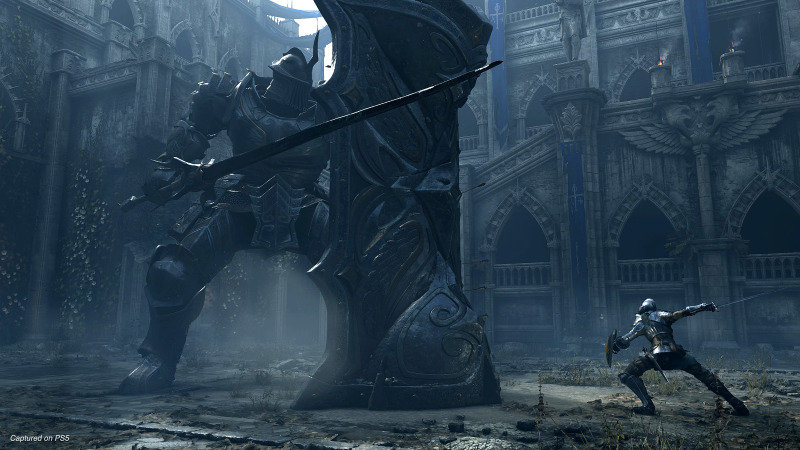
Are exclusives an outdated concept?
Exclusives, or aptly nicknamed ‘system sellers’ and ‘killer apps’, have been the structural foundation of game consoles for the longest time, but recent developments heavily imply they’re ending sooner than expected.
Among the gaming industry giants Microsoft and Sony, a paradigm shift is occurring in the distribution of their ‘intellectual property’, basically industry colloquialism for their owned franchises. They’ve likely witnessed the immense success of readily available streaming services like Netflix and finally arrived at the conclusion that maybe artificially constraining your already hideously expensive £50-or-more video game to a £400-or-more box isn’t the most accessible idea.
Compare a game console’s specs to a similarly priced gaming PC and the consoles easily wins. Even with economies of scale and bulk orders directly from the hardware manufacturers on their side, launching a next-generation console ain’t cheap. Years’ worth of manufacturer and yield improvements are necessary to barely break even.
Look at the launch model PlayStation 3 and its infamously high price tag of $599 (eye-wateringly, over $800 when accounting for inflation). The console went through several silent revisions and total overhauls to bring the price down. From smaller hard drive sizes, to removing hardware-level backwards compatibility and replacing it with a decidedly inferior software solution.
It’s well-known that operating at a loss is tightly ingrained in the production of consoles, with the platform holder’s hope being they offset their losses with day-one software sales, aided by the allure of exclusives.
It’s probably the reason why the aggressively priced and disk-less models of next-generation consoles exist – Xbox Series S and PlayStation 5 Digital Edition – is to constrain you to their locked-down ecosystem. If you want to buy a game, which is how they make their money, then you’ll have to go through their store and their store only. No borrowing from a mate, pre-owned games or third-party retailers offering up a better deal. They get to dictate the often over-inflated price and enjoy maximum returns with no percentage cuts.
The issues only exacerbated by the world-wide shortages of computer components. Nearly a year has elapsed since the launch of the PlayStation 5 and they’ve managed to push out 10 million units. We’re not undermining Sony’s success, the PlayStation 5 is highly in-demand, but compare it to the iPhone 12. Released less than a month before the PlayStation 5, the iPhone 12 has sold over 100 million units. This was another annual iteration of a smartphone with incremental upgrades, not an eagerly anticipated device ushering in the new generation consoles after a seven-year wait.
100 million units for one model of smartphone – never mind the all the other Android smartphones, tablets and more. And with PC gaming continually reaching new heights, these platform holders simply can’t afford to ignore the untapped potential of these markets. To recuperate their investments and meaningfully grow their audience, they’re turning to games you can play on any device.
‘Only On PlayStation’
To clearly highlight this recent trend, look no further than PlayStation’s supposed back-pedalling on the iconic ‘Only On PlayStation’ marketing mantra. Only a couple years ago, PlayStation was heavily pushing this notion of only the industry’s best experiences – enthralling stories, richly detailed worlds, jaw-dropping graphics – were only available on a PlayStation console. Many snippets, montages and trailers showcasing PlayStation’s first-party and exclusive talents have been uploaded to their official channels, closing with the following graphic of six games.
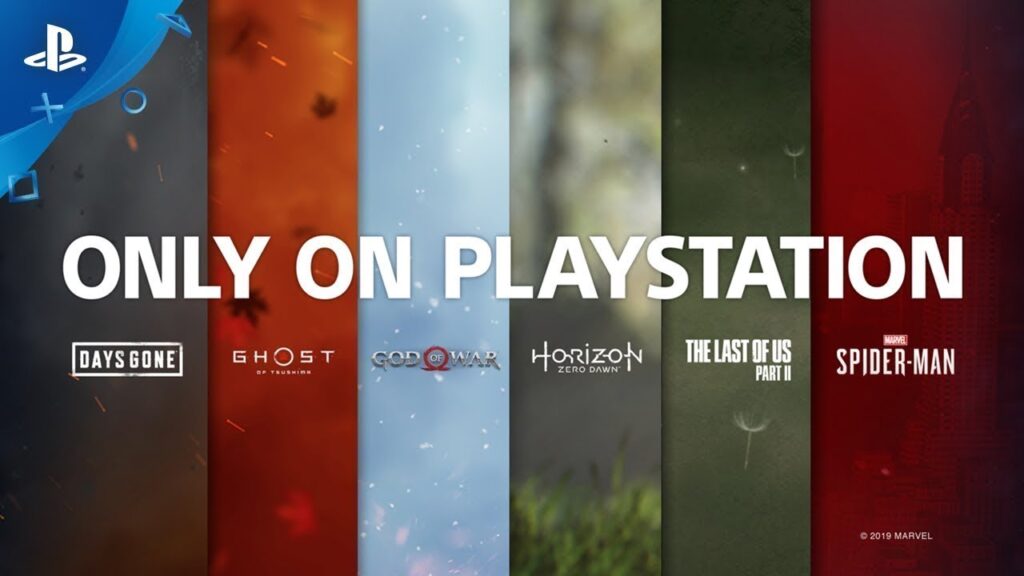
Out of these six games once locked to a PlayStation console, both the robot-dinosaur hunting game Horizon: Zero Dawn and the zombie apocalypse survival game Days Gone have graciously made their way to PC platforms. God of War, arguably the PlayStation 4’s most worshiped exclusive, was also recently announced to be coming to PC platforms early next year.
That’s three ticked off the above graphic and we’ve got to account for exclusives not on it, too! PlayStation’s best franchise Uncharted is coming to PC as part of the Uncharted: Legacy of Thieves Collection, consisting of former exclusives Uncharted 4: A Thief’s End and Uncharted: The Lost Legacy. These games were developed by the industry-renowned Naughty Dog, who’ve also developed The Last of Us, so we’d safely assume that’ll inevitably show up soon as their next PC release. If they need a helping hand, Sony acquired the PC porting extraordinaries Nixxes to help bring PlayStation games to PC.
To top it all off with a healthy dose of speculation, a gargantuan leak from a high-profile company’s internal database mentioned God of War coming to PC before it was officially announced, cementing its validity. However, the database contained references to a whole bunch of other supposed PlayStation console exclusives including Ghosts of Tsushima – another to tick off above – and yet unreleased games Horizon: Forbidden West and Gran Turismo 7.
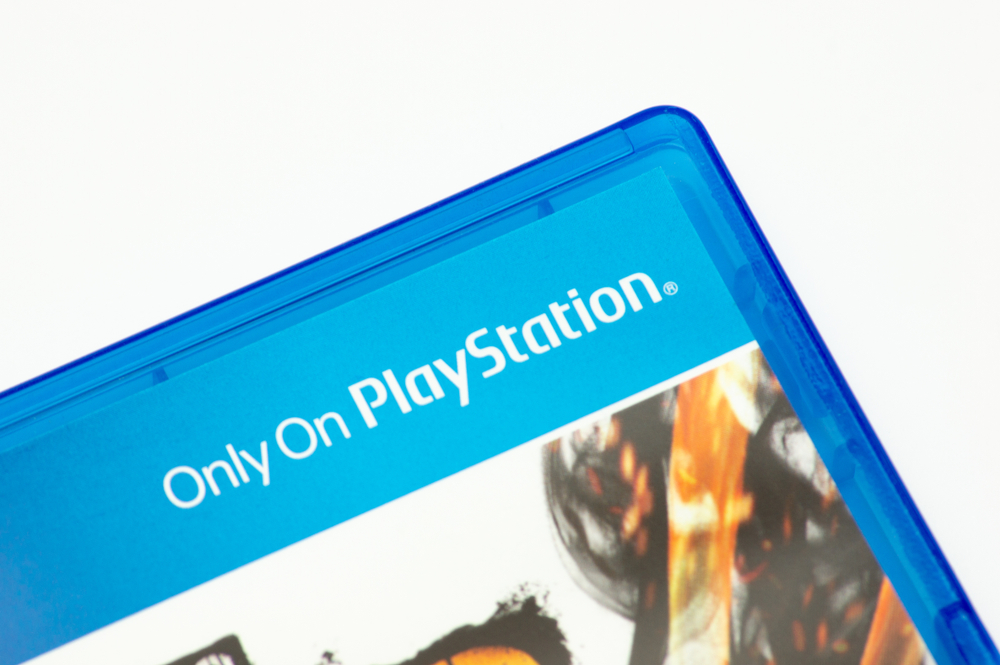
Provided by: Sam Bianchini / Shutterstock.com
PlayStation’s current strategy of slowly trickling out re-releases of former exclusives is wearing thin, but this implies PlayStation’s seriously considering the PC platform going forward. Will we see the gap in-between the console and PC release of a game shrink, or potentially even day-and-date release across both platforms?
After decades’ worth of crudely fabricated images of PlayStation exclusives on Steam from platform-warring fanboys, it’s honestly bizarre seeing the real deal. All signs are pointing to the ‘PlayStation’ naming becoming a platform-agnostic ecosystem for gaming on any device, rather than referencing the console hardware itself.
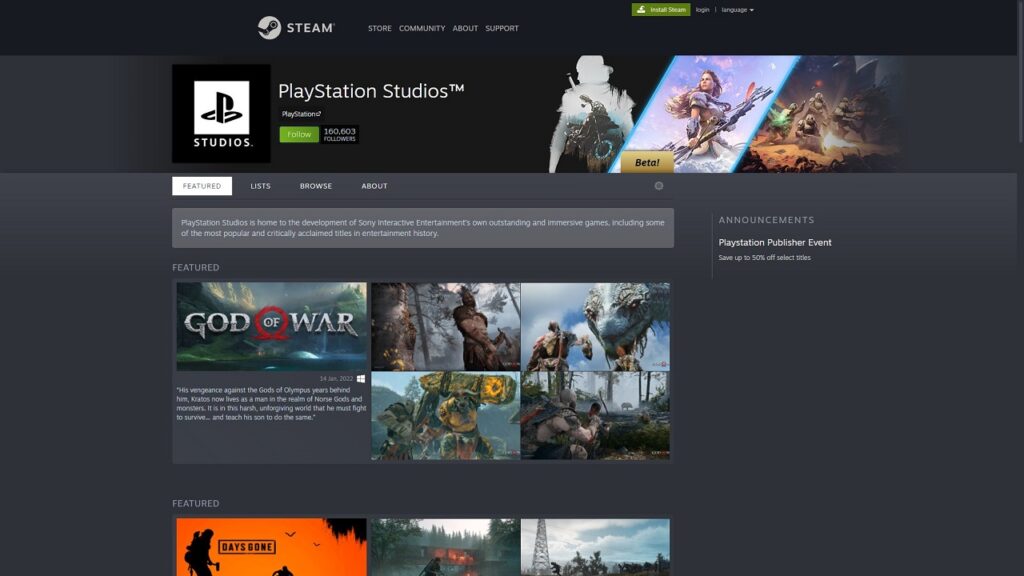
Stream games to any device
PlayStation’s PC push is an enticing prospect for gaming on any device, as enterprising gamers could leverage streaming services like NVIDIA GeForce Now to stream these triple-A games from a cloud-connected PC to a less capable device like a smartphone, laptop or desktop PC with integrated graphics.
With the continual growth of super-fast 5G network infrastructure and compatible devices, steaming is becoming a favourable option for gaming on any device, regardless of specifications. Among die-hard games, streaming is a contentious topic they’re worried it’ll outright replace traditional, physical set-ups and ownership over games. After all, no matter how good a streaming service’s connection is, there’ll always be inherent latency compared to running the game on a local machine.
However, we’d treat streaming as a supplementary option for gaming on any device, rather than making consoles and gaming PCs obsolete. Streaming is perfectly reasonable for squeezing in extra time when out-and-about, but it’s equally well-suited to a home environment with a powerful Wi-Fi 6 router and compatible device. Someone else hogging the TV, blocking access to your game console? Huddle up in bed and grind away in your favourite breezy, easy-going RPG by streaming it to your phone instead!
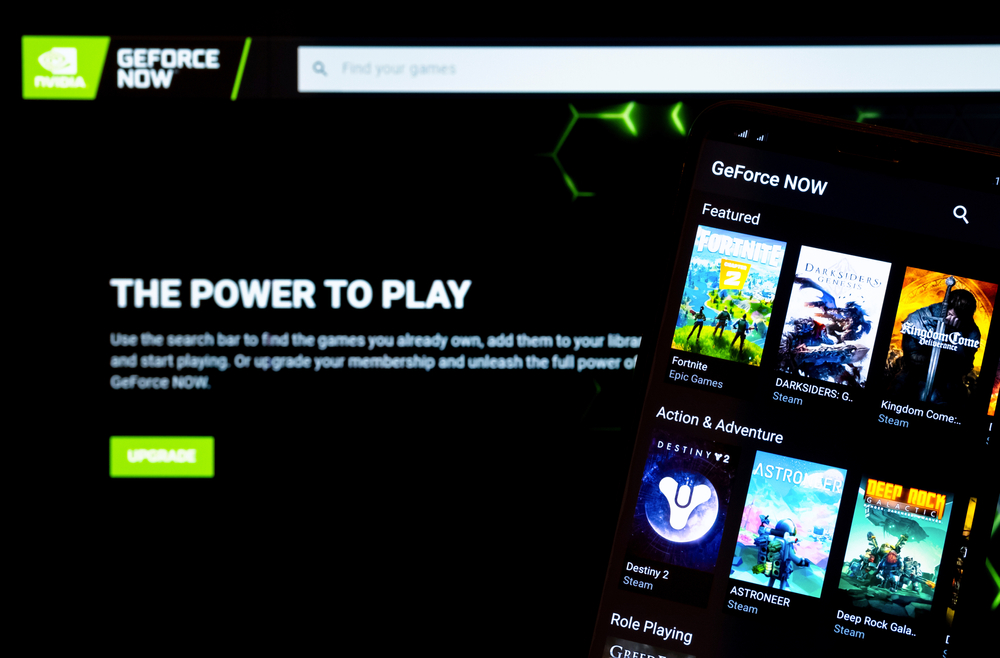
Cloud gaming & streaming services
As a burgeoning market, there’s plenty of options to choose from. Paid cloud gaming services like the aforementioned NVIDIA GeForce Now, Google Stadia, PlayStation Now and Xbox Cloud Gaming (Beta) let you stream your favourite games straight from their data centres.
Not having to own an expensive console or gaming PC lowers the barrier of entry to gaming considerably. A much broader range of people can try out games without an imposing upfront cost. Smartphone, tablet, laptop – streaming allows gaming on any device. Though, a high-speed internet connection of at least 10Mbps down is required, with a 5GHz signal for a less spotty reception. If you’re switching between streaming and playing locally on a console or gaming PC, these services synchronise saves over the cloud so you can pick up where you left off seamlessly.
Reinforcing the idea of streaming as a supplementary option, streaming services like PlayStation Remote Play, Xbox App and NVIDIA GameStream let you stream from your own hardware instead, free of charge.
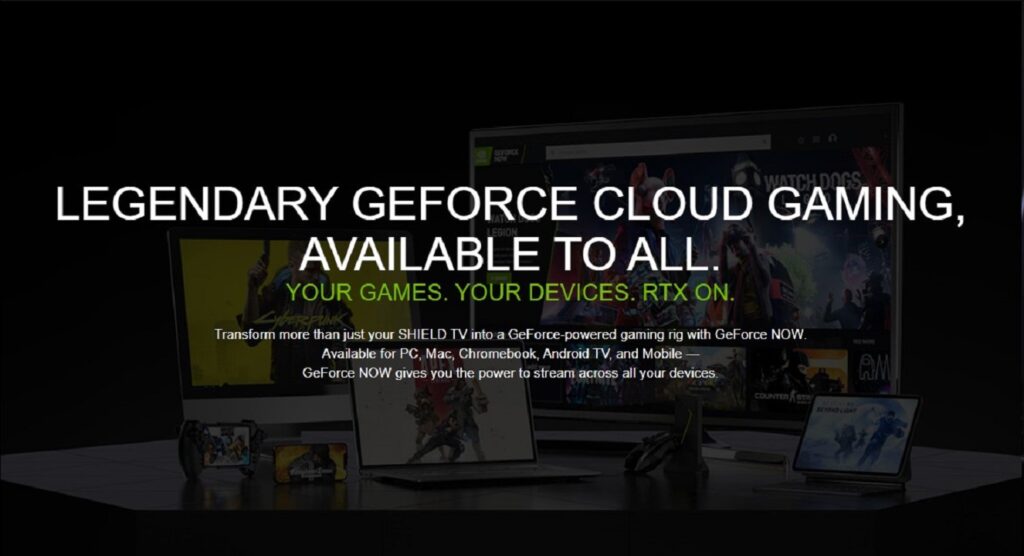
Games you can play on a smartphone
Mobile gaming is usually associated with killing time, escaping from a mind-numbingly boring situation you’re stuck in. Hours’ worth of a gruelling layover, an excruciatingly dull waiting room or standing around for unreliable public transport to, eventually, turn up. Many mobile games have earned the ‘time-waster’ moniker.
They’re not necessarily something you’d play voluntarily if presented with a console or gaming PC instead, but they’re an enjoyable enough distraction that’s at least better than blankly staring at a car seat’s headrest.
However, there’s an on-going effort for the biggest console and PC game publishes to wholly embrace mobile gaming due to rabid monetisation potential of the platform. This culminated in the now-infamous “do you guys not have phones?” tone-deaf speech and consequent backlash to the mobile game Diablo: Immortal, a traditionally PC-focused franchise.
The core, passionate gaming audience is understandably weary of mobile gaming’s uncertain future, but blanket statements like ‘all mobile games are micro transaction ridden nonsense’ isn’t constructive and intentionally ignores all the well-meaning developer’s concerted effort to dispel the negative reception and transform it into a worthy platform.

Rockstar Games – console-quality games you can play on your smartphone
The hardest slam dunk in mobile gaming’s favour is the mere presence of Rockstar Games on app stores, world-renowned developer and publisher of unquestionably one of the biggest, ambitious and influential video game franchises of all time – Grand Theft Auto. The fan-favourite PlayStation 2 era releases – including the pioneering and genre-defining Grand Theft Auto: III, neon-drenched ‘80s tribute Grand Theft Auto: Vice City and most iconic and industry-changing of all Grand Theft Auto: San Andreas – are readily available on Android and iOS.
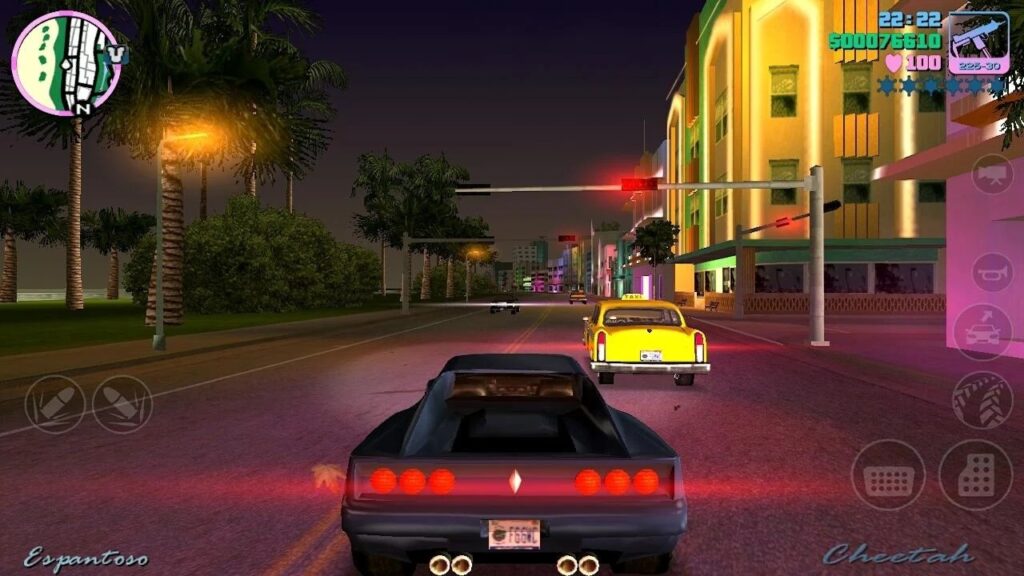
These Grand Theft Auto games are frequently cited examples of the untapped potential and ‘real’ future of mobile gaming. Here, on a device which slips into your pocket, you’ve got a veritable treasure-trove of content bursting at the seams. A vast open-world consisting of hundreds of hours’ worth of content, from expertly crafted story-driven missions to AI shenanigans.
These aren’t half-baked cash grabs lazily flipped on mobile platforms. Not to undermine the intentional simplicity and ruthless addictiveness of one-handed sliding title and match three puzzle games, but these Grand Theft Auto titles clearly represent a big departure from the standard fare most gamers immediately associate mobile gaming with.
Rockstar hasn’t stopped there, either. The newly unveiled Grand Theft Auto: The Trilogy – The Definitive Edition – the further enhanced version of the above entries – will be coming to mobile platforms early next year. Rockstar’s also ported a substantial portion of their diverse back catalogue to mobile devices, an exhaustive list all-time classics and spin-off series. Including Grand Theft Auto: Liberty City Stories and Grand Theft Auto: Chinatown Wars which were originally released for Sony’s PlayStation Portable and Nintendo’s DS hand-held consoles, the highly controversial among parents Bully – or Canis Canem Edit in other territories to avoid bans – and also the slow-mo, bullet-dodging third-person shooter Max Payne.
Best versions of Rockstar’s games?
Arguably, these mobile versions represent the best out-of-the-box method to play these games. Let’s take Max Payne, for instance. The sheer number of hacky work-arounds needed to get this game up-and-running on a modern operating system that’s older than Windows Vista is stupidly overwhelming. A quick glance at the PC Gaming Wiki or Steam Forum entry for Max Payne and the laundry list of unofficial, community-made patches scrolls on forever. You’ve got to crack the game’s incompatible digital rights management, input launch parameters, force settings through third-party programs and more for a bare-essential experience.

Whereas with the mobile version, everything’s flawless from the get-go, with extra enhancements to further strengthen it as the ‘definitive’ experience. From HD-quality textures and resolutions to customisable on-screen controls for mobile devices and support for smartphone controllers (detailed in our Ultimate mobile gaming guide). Rockstar Games’ releases on app store signify the potential of the mobile gaming.
What makes for a good mobile game?
Mobile gaming shows the strongest potential for gaming on any device, as we’ve all likely got smartphones for daily tasks. There’s plenty of ports of console and PC games for gaming on any device, but these weren’t envisioned with a touch interface in mind. They’re retroactively outfitted with on-screen prompts to replace tangible buttons, sticks and triggers to varying levels of success.
Some genres adapt to a touch interface better than others. Think deck-building games like Slay the Spire, Legends of Runeterra and Hearthstone, or turn-based games like FTL: Faster Than Light, Civilization or XCOM. These game genres translate effortlessly to a mobile gaming platform as they aren’t overly reliant on split-second reflexes, meaning their mechanics aren’t dumbed down or simplified either.
On mobile, they’re the full-fat experience directly comparable to a console or gaming PC, with only slight alterations smartly accounting for the form factor. Such as increasing the size on on-screen information – units, text, HUD – for better legibility and accessibility. The trickiest hurdle to overcome, however, is the limited number of inputs. How do you represent a multi-button input like ‘Shift+E’ on a touch screen interface, without bloating the screen with unique shortcuts for each in-game action? A lot of mobile games resort to not-so intuitive long-hold presses and multi-pronged gestures, so we’d strongly suggest picking up a controller for mobile gaming.
Games you can play in a web browser
When discussing games you can play on any device, we’d be amiss without mentioning at least a few browser-based games. Even if the unanimous agreement among developers to phase out the hack-prone Adobe Flash may impact its popularity.
As the name heavily implies, browser games are playable straight from the best internet browsers. Chrome, Edge or Firefox – whatever browser is your daily driver, you’ll be able to sneak in some extra gaming time in-between meetings while bored senseless at work.
The browser game’s content is entirely self-contained on server likely miles away from your real-world location, meaning there’s no prerequisite software packages or mandatory games patches like we’ve become accustomed to on most gaming-grade devices. Browser games are great for laptops and desktops PC with low-powered integrated graphics.
They’re free, too, though supplemented by low-quality, intrusive and often risqué advertisements if you accidentally stumble upon a less-than-savoury site proclaiming ‘FREE GAMES’, riddled with adware. Saving you this precarious step, here’s our top picks for the best browser-based games.

Slither.io
Basically, Slither.io is a multi-player, battle royale-esque twist on the retro classic Snake. Your primary objective is to grow and grow your freshly spawned worm by collecting glowing orbs. You control your worm’s direction with a mouse and can also click to voluntarily expel some of your weight to gain a slight speed advantage when shaking off foes.
Like Snake, as the length and girth of your worm’s body increases, you unwittingly become an easier target for your worst foes. You become a lumbering giant crowding the field that everybody’s out to take down. You can coil around and even touch your own body – a game-ending move in Snake – but if another player’s smaller, more manoeuvrable worm brazenly broadsides the tip of your own worm head-on, it’s game over. You’ll disintegrate into a pile of glowing orbs, a jackpot for other players to hastily hoover up to endlessly repeat the cycle of birth, growth and inevitable demise.
There’s something so innately satisfying about needling your lil’ worm through the perilous passages created by other player’s worms, gobbling up the leftovers of your downed enemies and eventually swelling to enormous sizes yourself.
Or, if you’ve got a troll’s streak in you, adopt the role of a nefarious worm hunter. You aren’t concerned with growing your own worm – you’re only interested in making brazen attempts at toppling other player’s towering worms. Intentionally throwing your teeny-tiny, default worm at the biggest players again and again until you succeed. It’s like re-enacting a crude, blobby representation of David and Goliath.
Slither.io is insanely extremely addictive. You’ll quickly suffer the same ‘just one more turn…’ syndrome, shared by the best strategy games. The split-second you explode like confetti, you’ll want to jump straight in and repeat the cycle again, seeing if you can best your highest score. It distils a fully-fledged battle-royale – like Fortnite or Call of Duty: Warzone – down to only the juiciest element of besting out hundreds of other players to reign supreme, but in a browser-based game you can play on any device. Check it out, here…

Spelunky Classic
Did you know Celeste and Spelunky, two of the highest regarded, independently-made 2-D platformers, were first conceived as browser-based games? Although they’ve been superseded by more fleshed-out and polished console and PC releases, their creators haven’t wiped ‘em off the web. The original iterations of Celeste and Spelunky are fully playable straight from your internet browser. They don’t feature the widest breadth of content and lean heavily on loveably pixelated stylings, but their second-to-second gameplay mechanics are just as tight-knit and snappy as ever.
Spelunky – with its randomly-generated geometry and item placements – benefits most from the browser-based treatment. No two runs are the same; you can’t rely on memorisation to brute-force your way through this incredibly challenging game. Delve deeper and deeper each run and uncover the darkest depths of Spelunky’s unrelenting world, teeming with all manner of deadly foes, cunning booby traps and environmental hazards. The randomised content ensures you’re always on your toes for an engrossing experience each time. Spelunky isn’t for the faint of heart. You’ll die – a lot – but not because of the fine-tuned platforming mechanics. Spelunky perfectly balances challenge and progression, incentivising repeat play-though to finally prevail. Nothing’s insurmountable, only barely out of hand’s reach.
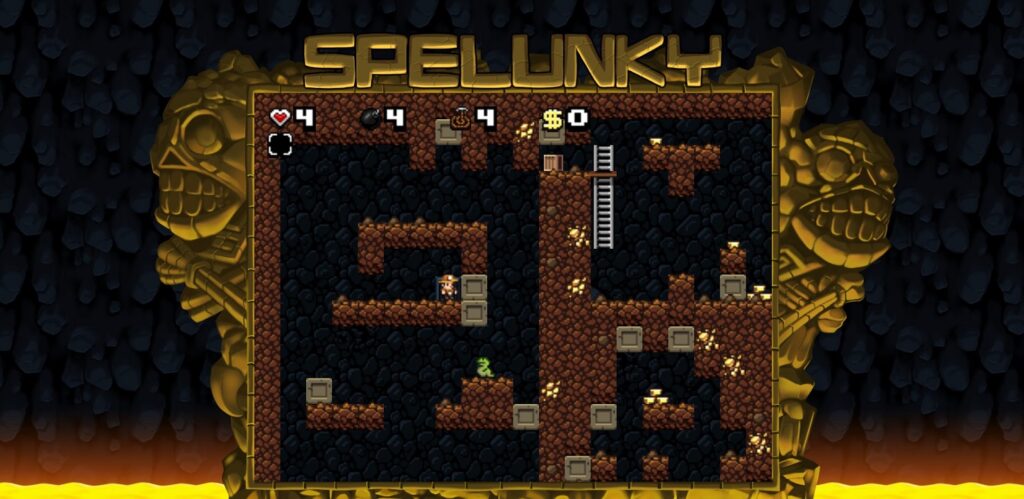
Celeste Classic
On the other hand, Celeste – now re-named Celeste Classic – is your more recognisable platformer with a traditional structure, recontextualised as a daring climb up a mountain. Celeste’s overall run time is fairly brisk, but the pixel-perfect precision it demands will keep you coming back to see it through to the end. Bottomless pits and spike traps take up more on-screen space than solid ground, so you’ll have to quickly master the two-button ‘jump’ and ‘dash’ controls to thread the needle. For masochistic speed-runners and completionists, even the browser-based iteration of Celeste features hidden collectibles which are devilishly tricky to find.

Minecraft Classic
A lot of the best indie game once started out as simple, proof of concept demoes hastily thrown together in ‘game jams’ for rapid-fire thought experimentation, with their original incarnations hosted as browser-based games for easier distribution. They’re likely – in some form or another – still available until this day. Do a bit of internet sleuthing and uncover your favourite game’s roots.
Originally released in 2009, a remake of a super-early version of the world-wide sensation Minecraft – dubbed Minecraft Classic – is available to play straight from your browser, with multi-player support up to 9 others too! This is Minecraft in its most pared-back form – no survival mechanics, mobs, monsters, item crafting – only placing a small selection of 32 blocks, mainly padded out with coloured variations of wool. But it gave gamer their first enticing taste of the game’s industry-changing procedural generation and creative possibilities.
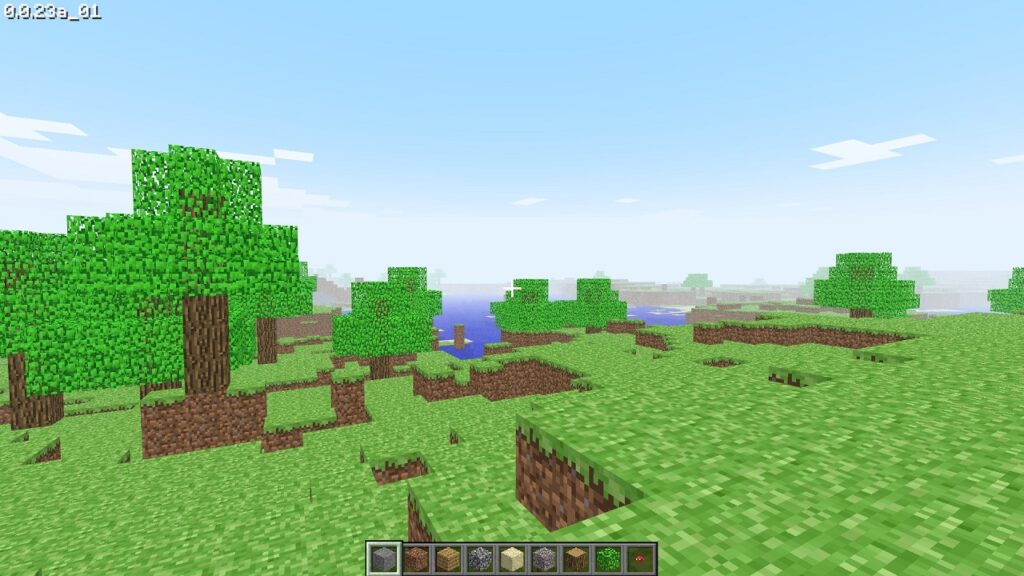
Dinosaur Game
If your internet is annoyingly prone to connection interruptions and full-on dropouts, you’ve probably been acquainted with the Dinosaur Game built into the Chrome browser. This is a nifty easter egg which should keep you preoccupied long enough until your internet regains access. Or, if you’d rather not wait around for your internet to dropout, simply copy-and-paste ‘chrome://dino/’ into your Chrome browser’s address bar to check it out for yourself!
Dinosaur game is a two-button endless runner in which you tap the spacebar – or screen for mobile devices – to jump over obstacles and duck under flying projectiles. Your only objective is to survive for as long as possible, with the game’s speed increasing the longer you stay alive. Your high-score is counted in the top-right corner. If you so much as barely graze an object, it’s game over. There’s no unlockable levels, hidden collectables or technically any colour. When stacked up against other browser-based games, Dinosaur Games is very bare-bones, but it can’t go wrong when there’s nothing else!

GeoGuesser
After the past couple years’ locked-down travel restrictions, have you got an irresistible urge to embark on a globe-trotting adventure, albeit in a virtual capacity? GeoGuessr may be just the ticket you’ve been waiting for. GeoGuesser is a browser-based geographic game which smartly deconstructs and re-purposes the otherwise mundane Google Maps into a gamified version of itself.
It plonks you down in a randomised location and offers up the challenge of finding your pinpoint location on a map, based solely off your surroundings. If you’ve ever enjoyed messing around with Google Maps – revisiting your childhood home, planning out future vacations, exploring foreign cities – this’ll pique your interest, but also sound like a nigh impossible task.
Google Maps is all-encompassing, capturing dingy back alleys to vast expanses of Australia’s outback, how on Earth are you supposed to deduce your location? Fortunately, GeoGuessr is somewhat forgiving, excluding stretches of barren landscapes devoid of even the subtlest clues in locations like Africa, Asia and Russia.
GeoGuessr is a surprising effecting learning resource and can be treated as an educational game, challenging you to think critically. You’ll quickly learn to leverage the sun’ positioning, road markings, left-and-right handed cars, signposts on foreign languages, flags and more to tick off a list of potential candidates and whittle down to a rough estimate of your locations, then honing even further in with notable landmarks.
You can self-impose restrictions like no moving, no panning and no zooming the StreetView camera to heighten the difficulty or play on user-generated maps like European Stadiums, All the Weatherspoons and Famous Places from Movies for a different sort of challenge.

The Wiki Game
In a similar vein, instead of exploring the world’s map, explore its history with The Wiki Game. Your goal is to delve deep into the Wikipedia rabbit hole and navigate your way from one randomly pre-assigned article to another by clicking internal links. It can be played solo or against competition and the winner’s decided by whoever used the least amount of clicks to reach their destination.
How are you supposed to link ‘natural selection’ to ‘amateur wrestling’? Even the most tangential, and often hilarious, links may be enough to guide your path. The Wiki Game is a great time-killer as, to the unsuspecting eye, it appears that you’re merely conducting research for work or school and for non-gamers there’s no confusing control scheme or prior understanding of common game mechanics needed to enjoy.

Gaming on any device
Gaming used to be heavily restrictive, with fan-favourite franchises inseparable tied to set devices. But nowadays, gaming’s been blown wide open. Whether you’re playing on a smartphone, laptop, desktop PC, gaming PC or game console – you’ve got more options for games you can play on any device than ever before. Check out Ebuyer for gaming components, peripherals and accessories.






